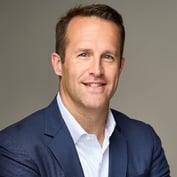While Egypt’s severe crackdown on political foes and journalists has resulted in condemnation from several countries, apparently investors are not as concerned. A few rapid moves—among them the appointment of veteran banker Ashraf Salman as investment minister—by Egypt’s new president, former army chief Abdel Fattah el-Sisi, have sent positive signals to both local and foreign investors.
Although Egypt’s stock market was down in the aftermath of the June 3rd election and following the introduction of a 10% capital gains tax on profits, some nevertheless believe that such moves are necessary for Egypt’s economic stability in the long-term. Egypt has a long way to go, of course, and its problems—political, economic and social—are manifold. But though these are early days, there appears to be an overall sense of optimism that el-Sisi can move Egypt out of the economic morass it has been in for the past few years.
What Egypt requires more than anything else right now is stability, according to Karim Elkady, a political scientist at Brandeis University’s Crown Center for Middle East Studies. Elkady, who’s originally from Egypt, said it is the foremost requirement for economic growth and it can only come about effectively with firm, strong leadership.
El-Sisi has the strength that’s needed to bring about stability in the near-term, Elkady said, and “in this period, it’s extremely important for people, Egyptians as well as foreign investors, to feel that the government is back in business and is doing its job in imposing the law and bringing back order.”
Elkady believes that Egypt’s greatest strength lies in its human capital, in particular the younger segments of the population. What’s new about the el-Sisi government, he said, is that “it doesn’t view the population as a burden for the state but as a resource to be utilized. That’s a huge change from previous governments, which provided services in health, education and so on, but saw demographic changes as a burden because there were so many more people to support.”
While inequalities in Egyptian society still run deep, and a key challenge for the government lies in being able to reduce those and narrow the gaps, “I also believe we will see a different type of intervention where the government will seek to push people to find better opportunities,” Elkady said. “Egypt has high unemployment, inflation and skyrocketing prices, and I don’t think we’ll turn into a pure market economy and allow the market to try and solve them all. But I do think we’ll see a different kind of government intervention, perhaps even a higher collaboration with the private sector, to encourage and help the Egyptian people forward.”








 June 23, 2014 at 09:20 PM
June 23, 2014 at 09:20 PM









